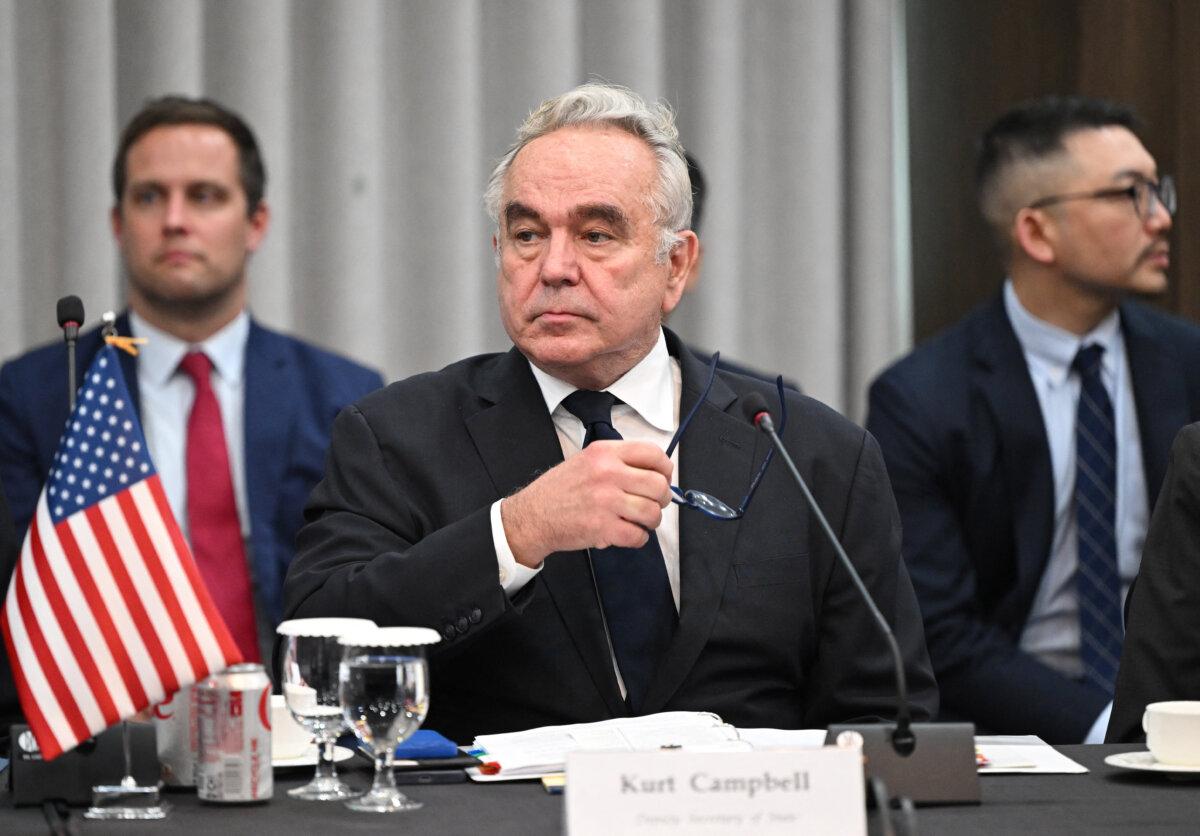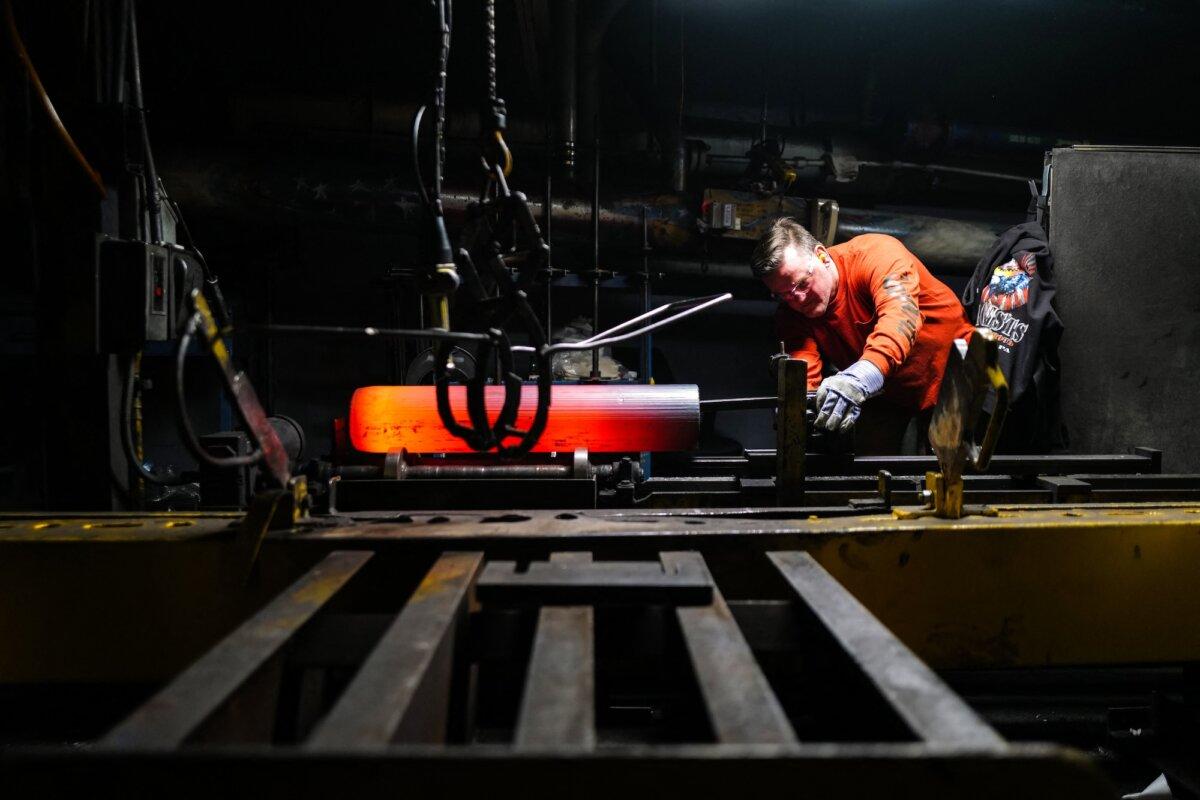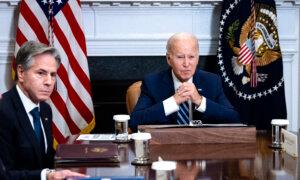Continuing with Trump’s policies, Biden likewise saw China as a strategic competitor with the ability and intention to change the U.S.-led world order.
Analysis
Few areas saw more continuity than change during the Biden administration than U.S.-China policy.
After the first Trump administration hardened Washington’s actions against the array of threats posed by the communist regime, President Joe Biden continued and built upon them.
The Biden administration worked to bolster alliances in the Indo-Pacific region and curb China’s access to American technology. The president also added a new dimension: a more multilateral approach to containing China and a more targeted scope in protecting key American technology.
Beijing’s ambition for global dominance will likely continue setting the tone for U.S.-China relations, experts say. That means much of Biden’s legacy on China is here to stay.
Looking back on his presidential years, Biden told the U.S. diplomatic corps on Jan. 13 that the United States is “in a better strategic position for long-term competition with China.” In addition, he believes he has left America and the next administration with a “very strong hand to play, and we’re leaving them and America more friends, stronger alliances.”
James Lewis, a senior vice president at the Center for Strategic and International Studies think tank, said the administration’s most significant success on China was building partnerships with allies and friendly countries.
“That’s a huge difference compared to where we were 10 years ago,” he told The Epoch Times.
Shi Shan, a China expert and contributor to The Epoch Times, said Asian leaders are more receptive to Biden’s traditional diplomatic style, which doesn’t humiliate or challenge them publicly. “In Eastern politics, keeping face is very important.”

U.S. Deputy Secretary of State Kurt Campbell attends a trilateral meeting with South Korea’s First Vice Foreign Minister Kim Hong-kyun and Japan’s Vice Foreign Minister Masataka Okano at the Foreign Ministry in Seoul on Oct. 16, 2024. Jung Yeon-je/Pool/AFP via Getty Images
A Different World
When President Joe Biden took over the White House, China hoped its troubles listing stocks in New York and U.S. export controls on semiconductors would end.
However, Biden continued Trump’s policies and saw China similarly: a strategic competitor with the ability and intention to change the U.S.-led world order.
Over the years, China’s export of its overcapacity has become a flashpoint in U.S.-China relations. That was no accident, according to Mike Sun, a U.S.-based businessman with decades of experience advising foreign investors and traders in China.
In December 2012, a month after taking over the Chinese Communist Party (CCP), Xi Jinping visited the coastal Guangdong Province, the iconic place of Deng Xiaoping’s economic reform in the late 1970s. During the trip, Xi expressed his disappointment with the 1991 collapse of the Soviet Communist Party: “In the end, nobody was a real man. Nobody came out to resist.”
From that speech, Sun heard Xi’s commitment to the CCP and realized he had underestimated the importance of power to the Party and its leadership. The economic reforms hadn’t changed them. On the contrary, he said the “red heirs,” or the second generation of the founding members of communist China, with Xi as their representative, saw that Deng’s economic development path would lead to a loss of power for the CCP.
Xi’s solution was a new era in which the Party would dominate the world. To achieve that, he needed to find a path independent of reliance on the West. Hence, in 2015, he announced the “Made in China 2025” industrial policy and began transitioning the anchor of the Chinese economy from the property market to advanced manufacturing. At the same time, he decided to export his way out of China’s decades-old overcapacity problem.
In Sun’s view, CCP leader Xi has made a massive gamble with his industrial policy and is unlikely to change. Xi doesn’t care about the economy so long as it stops short of a financial crisis or property market collapse, he said. Chinese people’s well-being is a commodity that the Party is ready to sacrifice for its power.

A worker inspects the form of the shaped steel billets following the “press” stage in the 155 mm caliber shells manufacturing process at the Scranton Army Ammunition Plant (SCAAP) in Scranton, Pennsylvania, on April 16, 2024. Charly Triballeau/AFP
Foreign Policy for the Middle Class
After China joined the World Trade Organization in 2001, its cheap exports flooded the United States, eliminating over 2 million American jobs, half of which were in manufacturing. This phenomenon, usually called the “China Shock,” has hollowed out American communities.
The administration resorted to a policy combo to address the challenge.
While building partnerships with other countries on security, technology, and commerce, the United States imposed tariffs on Chinese goods and restricted China’s access to key industry technologies such as semiconductors and artificial intelligence. At the same time, the CHIPS and Science Act provided federal incentives to boost domestic growth and innovation.
Shi said the CCP hates the “small yard, high fence” approach. The phrase describes the Biden team’s choice of tight control on a selected group of technologies.
The CCP calls the approach a “de facto wall.” Shi said it’s because the overall impact of curbing technology access felt like a high fence to the Chinese regime.
Parallel to export controls, Lewis believes the Biden administration did a good job boosting domestic innovation capacity, yet stopped short of having a sustained program. “I think that will come back to haunt us,” he said.

Republican presidential nominee former President Donald Trump speaks at a campaign event to address concerns about the threat of communist China to U.S. agriculture at the Smith Family Farm in Smithton, Pa., on Sept. 23, 2024. Win McNamee/Getty Images
How Much of the Legacy Will Survive?
Sun said that since Xi and the CCP will likely continue to pursue global dominance, the continuity of the China threat will keep the framework of Biden’s alliances in place, regardless of how different Trump’s specific approaches will be.
Calling the Chinese regime the “greatest adversary” of the United States, Waltz said on Jan. 14 that one of the critical bipartisan policies on China for the new administration would be to “really continue to reinforce” the existing partnerships with Japan, South Korea, and the Philippines for the shared vision of a free and open Indo-Pacific.
More work is necessary, and alliances in the area are less cemented than the Biden administration would like to acknowledge, said Sun. In his view, the United States has not yet addressed the fundamental issue of its Asian allies’ dependence on China’s market.
Lewis said he has learned that the incoming Trump administration will reconsider all policies. However, he sees limited room for Trump to strike a deal with China and change course.
China would need to offer something attractive enough to Trump, such as stopping espionage or agreeing to follow the rules of the World Trade Organization, which, in Lewis’s view, the Chinese regime wouldn’t be willing to do.
Hence, Lewis doesn’t expect any “rollback” on America’s China policies.
“What could China offer that would make Trump reconsider?” Lewis added.
“What would they offer that would make Trump reconsider, and he could also sell on the Hill and to the American people?”
Original News Source Link – Epoch Times
Running For Office? Conservative Campaign Consulting – Election Day Strategies!


